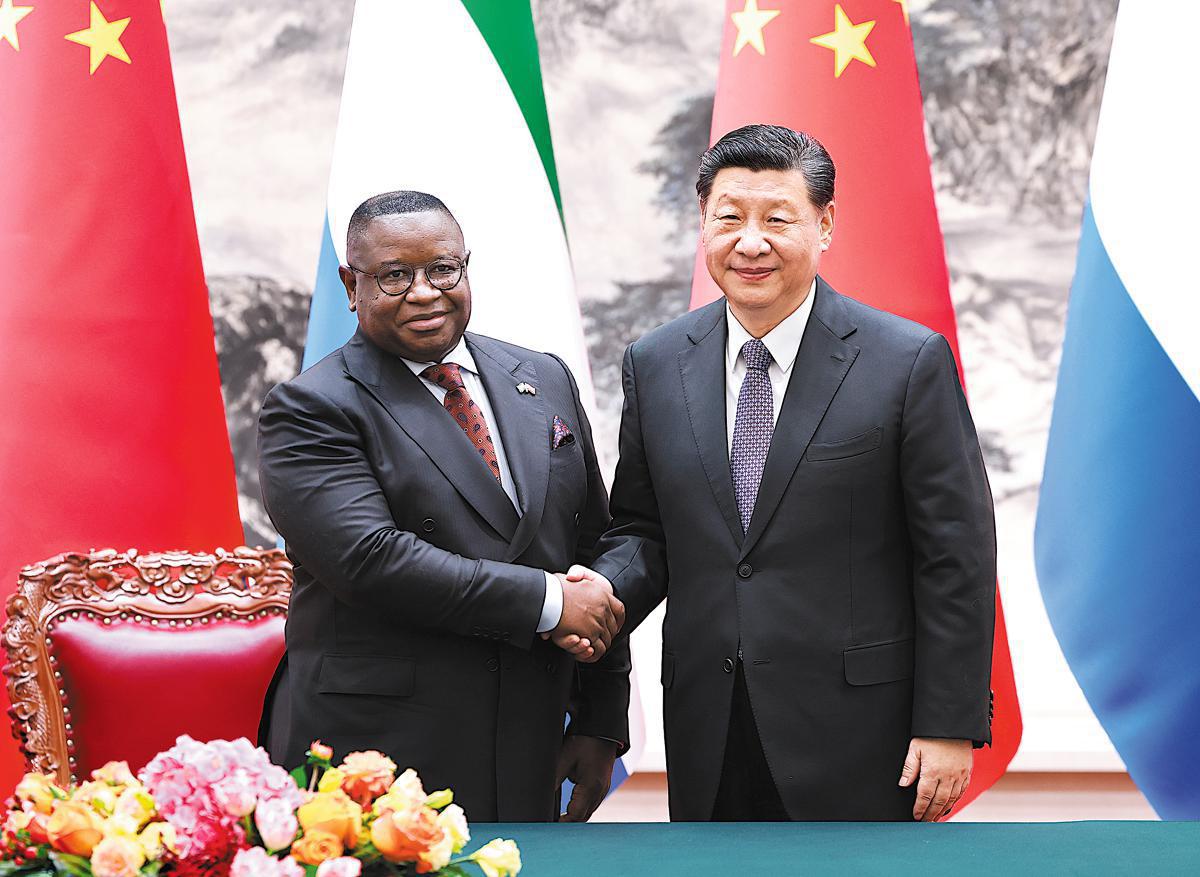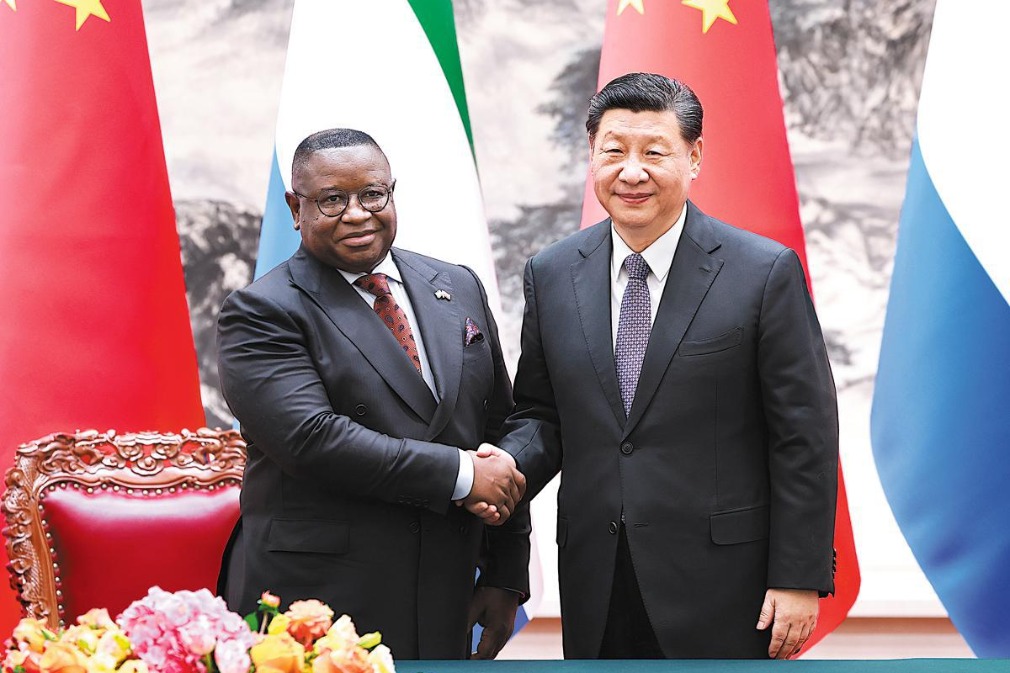
President Xi Jinping on Wednesday shook hands with visiting Sierra Leone President Julius Maada Bio during a meeting at the Great Hall of the People in Beijing.Feng Yongbin/China Daily
Sierra Leone is a country on the west coast of Africa with a total area of 71,740 square kilometers and a population of 7.75 million people.
Sierra Leone's economy relies primarily on mining, particularly diamond mining, and it is one of the largest producers of titanium and bauxite, as well as a major producer of gold. It also has one of the world's largest reserves of rutile. According to 2011 data, despite being a country with abundant natural resources, approximately 53 percent of the population lived in poverty. Although the country experienced macroeconomic growth from 2003 to 2011, its GDP per capita remains much lower than the average GDP per capita in sub-Saharan Africa. .
Sierra Leone has experienced several civil wars and extreme poverty since its independence in 1961. She is one of the few countries in the world that faces extreme poverty despite having valuable natural resources such as diamonds and rare minerals. Issues contributing to this poverty include poor governance, underdeveloped infrastructure, and lack of education.
Sierra Leone's infrastructure is poor. There are no roads, bridges, or railways. Transporting goods and services to these areas is always a challenge, as the roads to most villages are not motorable.
Sierra Leone's literacy rate was only 47.7% in 2021. And this lack of education is the root cause of the civil war we have seen in Sierra Leone. Government funding for both public and non-government-aided schools is inadequate, and necessary learning materials, such as textbooks, notebooks, pens, and pencils, are consistently in short supply, hindering education.
It is a proven fact that a country cannot reduce poverty unless it educates its people and instills self-discipline. Education and self-discipline are necessary to alleviate poverty and promote sustainable development.
Over the years, we have grown accustomed to a colonial-era education system focused on preparing people for white-collar jobs, but low vocational skills and a lack of entrepreneurial spirit have led the country to its current situation. led to. Therefore, further reforms are needed to enable the country to move from this hopeless state towards economic development.
China succeeded in eradicating absolute poverty by the end of 2020 because it prioritizes education. A nine-year compulsory education policy was implemented to ensure that all citizens had access to basic education to help them escape poverty. China has won praise from the United Nations, the World Bank and other international organizations and institutions for lifting some 800 million people out of poverty over the past four decades.
In order to integrate and properly manage other resources, China focused on optimizing the use of human capital at all levels to promote development. Capacity building and advances in technology will also help China implement policies aimed at eradicating poverty and developing a roadmap to high-quality development, rather than blindly pursuing fast-paced growth that exploits resources. This is an important element to support the design of supporting systems. .
With a literacy rate of nearly 98%, Chinese people are able to secure better jobs and contribute to the country's economic growth.
China's goals (to build a moderately prosperous society by the end of 2020 and a great modern socialist nation that is prosperous, strong, democratic, culturally advanced, harmonious and beautiful by 2050) If you look, with the resources available, we can accomplish these things because we have a well-educated, self-disciplined and innovative workforce.
China has made great strides toward development not because it has a magic wand, but because it has carefully planned development policies and painstakingly implemented them. Therefore, there is much that Sierra Leone can learn from China and emulate if necessary.
In fact, Sierra Leone could eradicate poverty if it made at least primary and secondary education compulsory and carefully monitored its implementation. They should also devise and implement policies that help combat corruption at all levels, find ways to eradicate poverty at all levels and involve people in the process.
The author is director of the China-Africa Institute at Makeni University in Sierra Leone, and the views do not necessarily reflect those of China Daily.
If you have specific expertise or would like to share your opinion about our articles, please send your articles to opinion@chinadaily.com.cn and comment@chinadaily.com.cn.


